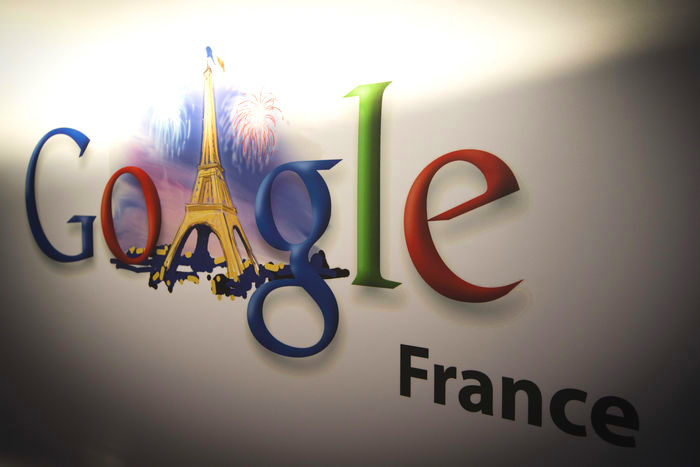Google отклонил требование Франции распространить на весь мир удаление ссылок по «праву быть забытым»

Компания Google отказала государственному ведомству Франции — национальной комиссии по информатике и свободам (France’s Commission Nationale de l’Informatique et des Libertés, CNIL) в праве реализации удаления поисковых запросов по «праву быть забытым» по всему миру.
Поисковик указал, что данная возможность определена судом строго в рамках ЕС и не применяется глобально и ни одна страна не имеет права контролировать, к чему могут получить доступ пользователи других стран.
«Есть бесчисленное множество примеров по всему миру, когда контент, который объявлен незаконным в соответствии с законодательством одной страны, будет считаться законным в других: Таиланд ввел уголовную ответственность за критику их короля, Турция ввела уголовную ответственность за критику деятельности Ататюрка, а в России запрещаются материалы, которые могут быть квалифицированы, как «гей пропаганда», — отмечает компания Google.
В случае отказа его выполнять Google может столкнуться со штрафными санкциями, пусть и небольшими по сравнению с оборотом компании (порядка € 150 000), тем не менее существенными, если речь будет идти о массовости таких запросов со стороны европейских государственных ведомств и регулярном их отклонении со стороны поисковика.
Google предупреждает, что применение права забывать глобально вызовет гонки на выживание и Всемирная Сеть потеряет всю свою свободу.
Западные эксперты всё чаще стали отмечать, что реализация «права на забвение» напоминает лечение, которое хуже самой болезни.
С мая 2014 года Google обработал 291 444 запроса от пользователей по удалению информации из поисковой выдачи о их деятельности на 1 058 668 страницах интернет-сайтов.
При этом только в 41,3% случаев поисковик удовлетворил данные запросы.
Google регулярно публикует отчеты и статистику по реализации «права быть забытым» и приводит примеры запросов на удаление ссылок из поисковой выачи, поступающих к ним.
Вот пример из Франции:
Полный текст заявления Google по данной ситуации:
Implementing a European, not global, right to be forgotten
In a landmark ruling in May 2014, the Court of Justice of the European Union (CJEU) established a «right to be forgotten», or more accurately, a “right to delist”, allowing Europeans to ask search engines to delist certain links from results they show based on searches for that person’s name. We moved rapidly to comply with the ruling from the Court. Within weeks we made it possible for people to submit removal requests, and soon after that began delisting search results.
It’s now just over a year later and we’ve evaluated and processed more than a quarter of a million requests to delist links to more than one million individual web pages. Whenever a request meets the criteria set by the Court for removal (which are that the information can be deemed inadequate, irrelevant, no longer relevant or excessive, and not in the public interest) we delist it from search results for that individual’s name from all European versions of Google Search.
However, earlier this summer, France’s data protection regulator, the CNIL, sent us a formal notice ordering us to delist links not just from all European versions of Search but also from all versions globally. That means a removal request by an individual in France, if approved, would not only be removed from google.fr and other European versions of Google Search, but from all versions of Google Search around the world.
This is a troubling development that risks serious chilling effects on the web.
While the right to be forgotten may now be the law in Europe, it is not the law globally. Moreover, there are innumerable examples around the world where content that is declared illegal under the laws of one country, would be deemed legal in others: Thailand criminalizes some speech that is critical of its King, Turkey criminalizes some speech that is critical of Ataturk, and Russia outlaws some speech that is deemed to be “gay propaganda.»
If the CNIL’s proposed approach were to be embraced as the standard for Internet regulation, we would find ourselves in a race to the bottom. In the end, the Internet would only be as free as the world’s least free place.
We believe that no one country should have the authority to control what content someone in a second country can access. We also believe this order is disproportionate and unnecessary, given that the overwhelming majority of French internet users—currently around 97%—access a European version of Google’s search engine like google.fr, rather than Google.com or any other version of Google.
As a matter of principle, therefore, we respectfully disagree with the CNIL’s assertion of global authority on this issue and we have asked the CNIL to withdraw its Formal Notice.
We have worked hard to strike the right balance in our implementation of the European Court’s ruling and have maintained a collaborative dialogue with the CNIL and other data protection authorities, who agree with our decisions in the majority of cases referred to them. We are committed to continuing to work with regulators in this open and transparent way.
——————